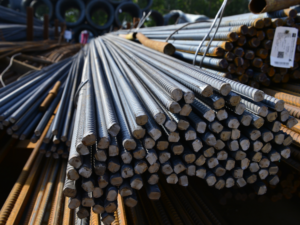
German steel industry interest group Wirtschaftsvereinigung (WV) Stahl has expressed concern over the increase in the quotas for steel imports into the European Union, which took effect on 1 July.
“Another relaxation of the safeguard measures is very bad news for steelmakers in Germany and the EU,” says WV Stahl’s president, Hans Jürgen Fuhrmann. “The system of protection clauses, which is already insufficient, is weakened even further.” Kerkhoff says that the “… defective design” of the measures should be corrected by an auditing procedure announced by the European Commission in mid-May. “From a [… German] steel industry viewpoint, the measures in their present form are not adequate,” WV Stahl’s statement reads.
But more precisely, the statement ought to read ‘steelmaking’ industry. German coil processors, only a few steps on from the liquid steel phase, have already come out strongly against a review. The federations of cold rollers (FVK) and sheet formers (IBU) have asked the EU to expand the quotas for steel categories 1 (hot-rolled coil) and 4B (hot-dip galvanized coil). And If expansion is possible, then the federations are asking the EU to at least keep quotas at the current level.
Processors do not deny that steel imports have risen this year, consultant Andreas Schneider explains to Kallanish on behalf of the two federations. However, they reject the contention that this is due to a “… massive diversion of trade flows,” following the duties imposed by the USA, as is argued by WV Stahl. Against that, the processors point out that US imports of 4B coil products have risen as well as having done so in the EU.
According to Schneider, reasons for shifts in imports are as widespread as product lacking availability in the EU, price advantage, purchasing strategy, or quality improvement in foreign products. He finds that the import share for steel products at 10-25% is reasonable, given that cars also have an import share of 20%.




